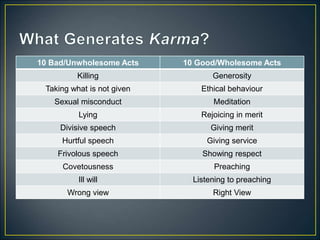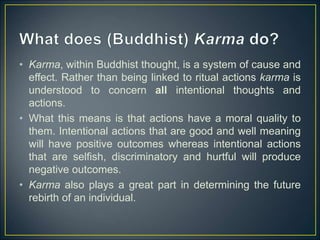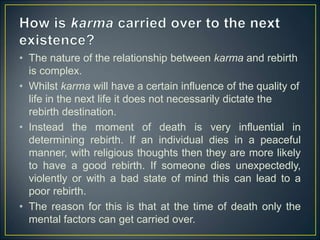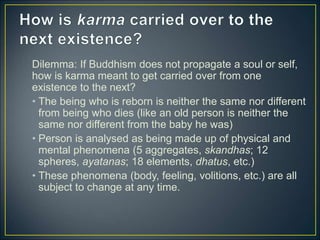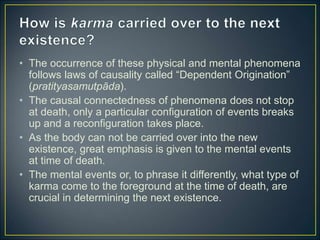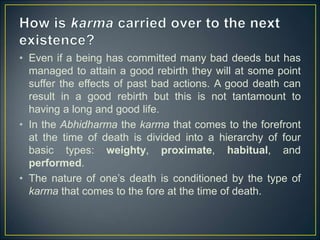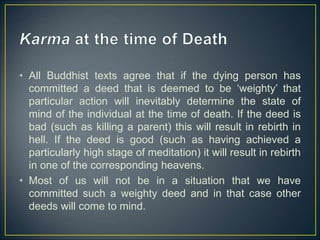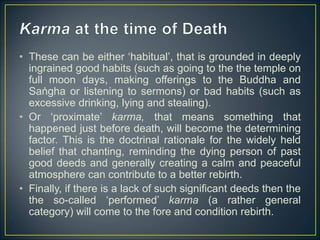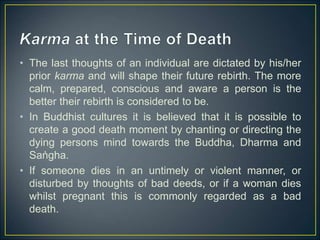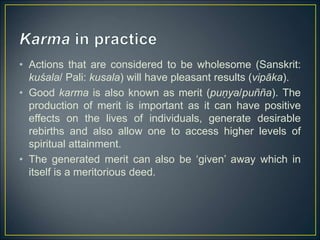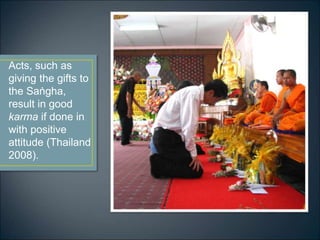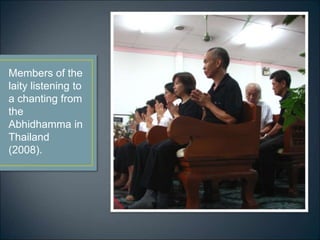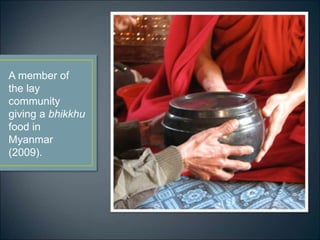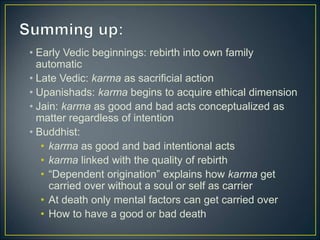The document discusses the concept of karma in Indian religions, particularly Buddhism, highlighting its evolution from an automatic rebirth mechanism to an ethical framework influencing future lives. It explains how intentional actions, moral qualities, and the state of mind at death impact rebirth, emphasizing the significance of mental factors during the dying moment. Additionally, it distinguishes between wholesome and unwholesome actions, illustrating their effects on an individual's karma and future experiences.

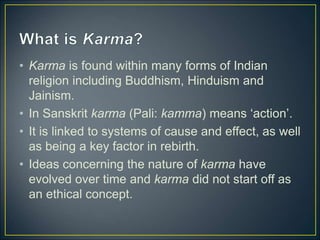
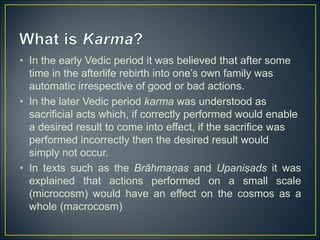
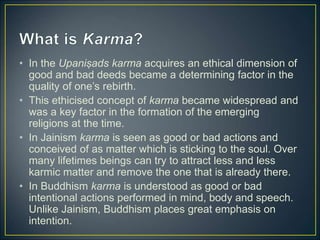
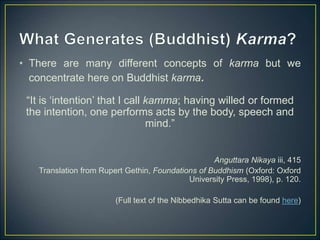

![In later Buddhist Literature we find reference a list of 10
meritorious deeds (Abhidhammatthasaṅgaha 25) :
• It is also tenfold according to (i) generosity, (ii) morality,
(iii) meditation, (iv) reverence, (v) service, (vi)
transference of merit, (vii) rejoicing in [others’] merit (viii)
hearing the doctrine, (ix) teaching the doctrine, (x) and
straightening one’s views.
Translation from Narada Mahathera, A Manual of Abhidhamma,
(Bangalore: Power Press 1956), vol. I p 241.](https://image.slidesharecdn.com/karma12d-230124004613-98679128/85/Karma-12D-ppt-7-320.jpg)
